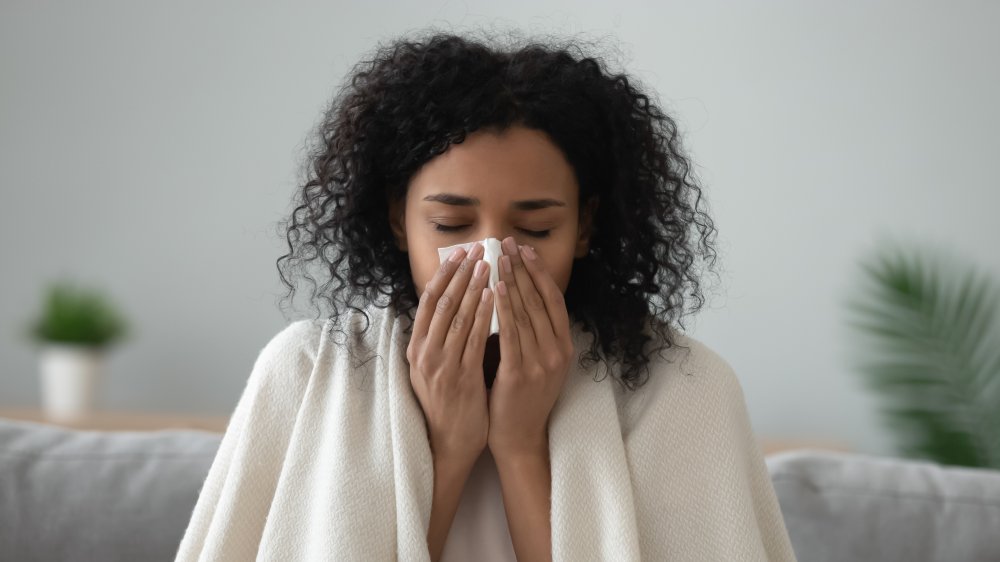Why You Might Gain Weight When You Have A Cold
Your body, as you fight off the common cold, is kind of like a house after a particularly wild party: a total mess. Your eyes are puffy, the skin surrounding your nostrils is tender and pink, and your lips are chapped. Plus, there are empty cups and the trash of balled up tissues everywhere. Food tasted terrible due to your post-nasal drip, and you might be feeling weak because you didn't eat much for the past few days. But when you step on the scale, you've discovered you've gained some weight! Talk about adding insult to injury.
Many of us assume we'll lose weight when we're sick, but that's not always the case. Weight loss when you have the stomach flu, or gastroenteritis, is pretty common, and it's mainly caused by severe dehydration from vomiting and diarrhea (via VeryWellFit). With a head cold, though, the symptoms typically are nasal congestion, headache, sore throat, and tiredness, and drinking lots of fluid is one of the best ways to feel better (via WebMD). If you'd been trying to lose weight before you got sick, the healthy foods you ate, like salads and grilled chicken, may have been replaced by noodles, potatoes, and hot tea with honey, and people with colds may choose to sit out their workouts (via LiveStrong). All of these lifestyle changes can lead to an increase in the scale readout.
Focus on getting well, rather than on temporary scale fluctuations
Experts point out that weight loss caused by illness is not a healthy or sustainable way to achieve your better body goals. "Whether you're talking about the influenza or a gastrointestinal virus, you're usually losing a lot of fluid and not eating as much. Most of that weight loss is dehydration," David Beuther, M.D., a pulmonologist at National Jewish Health, told SELF. "I would not encourage anyone to see how much weight they can lose during an illness. If anything, they should be trying to put on weight" to have the energy to recover more quickly, he urged.
And that may mean skipping those calorie-burning sessions at the gym — or at least toning them down — until you're back to 100 percent, experts noted. Working out while you have a common cold generally isn't a bad idea if you've got the energy for it and your symptoms are mild, but if you have a fever, a bad cough, or just feel wiped out, listen to your body and stay in bed. "Rest and staying hydrated by drinking liquids are important in helping you get better," Catherine Liu, M.D., associate professor of clinical medicine in the division of infectious diseases at the University of California, San Francisco, told Everyday Health. Since staying well is important, put recovery from a cold at the top of your list; you can conquer your weight loss goals when you're feeling healthy again.


